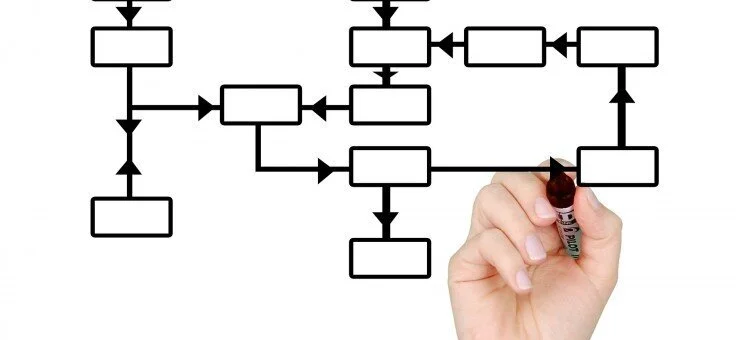Is There Discipline in Your Sales Process?
“Discipline is not the fear of punishment for
doing something wrong, but a faith in the
value of doing something right.”
—General Dennis J. Reimer—
Many sales cycles are stalled. Whether your team is selling print, services, direct mail, software, equipment, or products, the current situation has many sales cycles stuck and delayed. Your sales team may be hearing from customers that decisions are on hold or postponed. Or they may be hearing nothing as prospects do not respond to emails and phone calls.
Now is the time to evaluate and modify your sales process. An effective sales process produces results that are scalable and repeatable. Effective sales execution requires discipline to follow the defined steps for every deal in your pipeline. And a sales team who understand the “why” for each step in the sales process is an effective sales team.
There are many great sales methodologies, both old and new, that have proven successful in B2B and B2C. Every successful methodology defines a series of steps in the process and proscribes sales tasks at each stage, ultimately converting a suspect or lead into a paying customer.
Sales process
Several effective B2B sales methodologies define six steps, the major milestones, in decision making and engagement:
Prospecting – Lead generation
Preparation – Qualify
Approach – Develop
Presentation – Propose
Closing – Contract
Expand – Upsell/cross-sell
Most often deals progress and customers receive a proposal or presentation. And then the deal goes quiet. Crickets? Often the deals are lost to no decision. The customer didn’t choose a competitive solution. They just made no decision to change.
Evaluating your sales process will provide clarity on what may be missing during the qualifying and development phases. Did the sales team comprehend all the decision makers and their personal motivations to align with the solution? Did the sales team document and quantify the results of your solution with the business impact to the buyer(s)? Did the salesperson research and qualify prospect’s likelihood to close before presenting a proposal?
I coach sales teams to have discipline in their sales process. I want them to invest their most valuable asset, their time, where they will get the best outcome. How salespeople spend their time dictates if their sales cycles are moving forward. I recommend salespeople ask hard and probing questions of their buyers. The goal is to understand what is important to their business and what is the potential impact of the solution from the customers’ perspective. This is not easy, and it takes discipline. Salespeople need to do the research, and define the criteria for each step in the sales process. Following a prescribed process provides structure for better decision making and knowing what is needed next, and when to walk away from prospects that are not likely to close.
No Cowboys
In many organizations there is a loosely followed formal sales process which leads to individual salespeople who follow their own self-made process. The most challenging part of sales management is encouraging discipline at each step. When followed, this discipline leads to better and predictable outcomes. Better outcomes mean shorter sales cycles, reducing the burden on technical or creative resources. Walking away from deals that are unlikely to close means less time wasted. Discipline in a sales process includes documentation. It means gathering data and intelligence about the organization and defining their priorities, and decision criteria.
Great salespeople know how they spend their time and they produce better sales results. They do not skip steps. Also, they spend more time speaking with decision makers, gaining trust, and understanding what is important to them. Sales teams who understand their customer’s business, and how the proposed solution aligns to the customer’s business goals and KPIs produce results.
Business with COVID
We’re now in an ever-changing business environment. Customers will continue to buy new services and solutions and their buying criteria may be very fluid. Their organizations will need strategic partners to morph, evolve, and grow. Salespeople will need to work hard to qualify and communicate at each stage in the sales process to assist customers in a more complex world to move forward with new solutions.
Looking to evaluate your sales process to generate better results?
Commit to a strategic model
Define a sales process including tools to manage sales cycles
Define a process to win new business
Define a process to win additional business from existing customers
Evaluate and score sales opportunities consistently
Looking for assistance in adding discipline to your sales process? I would love to speak with you.


